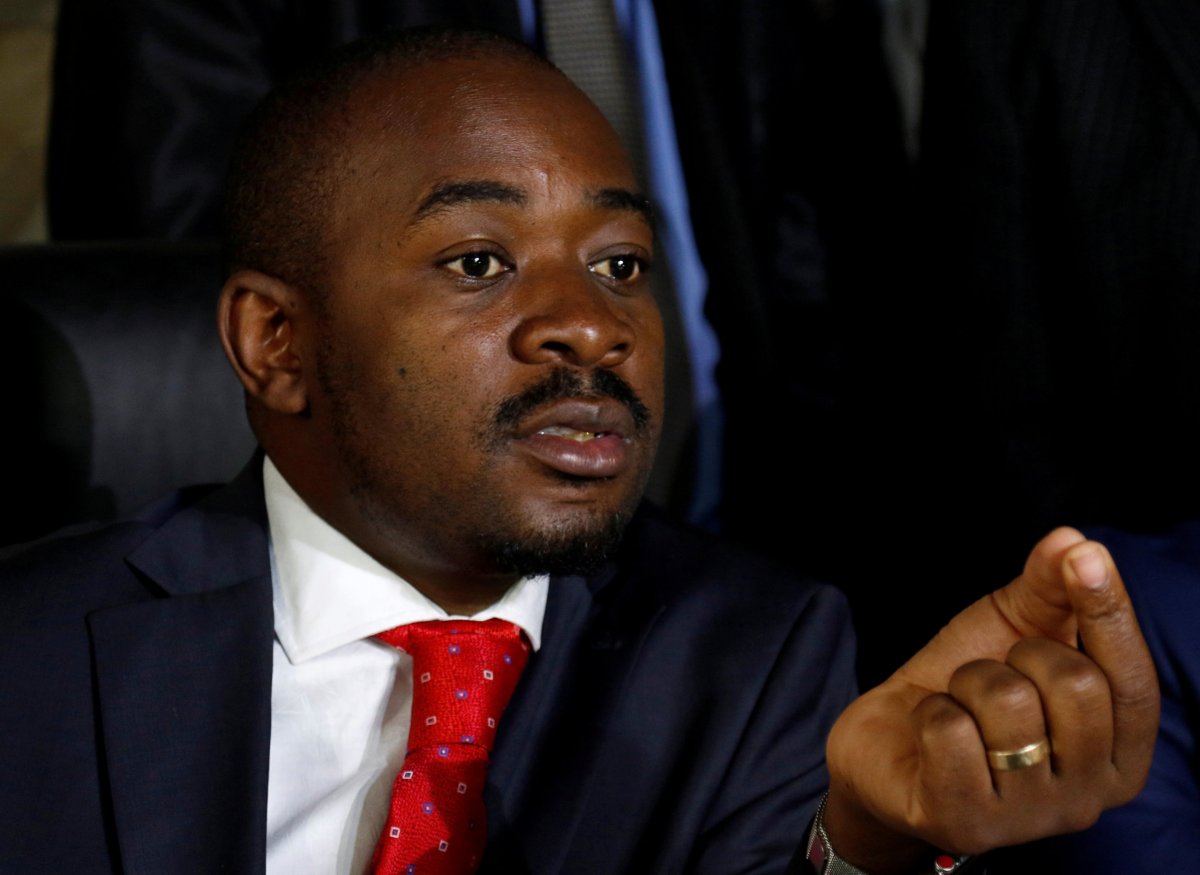HARARE (Reuters) – Zimbabwe’s Supreme Court on Tuesday declared Nelson Chamisa’s leadership of the main opposition MDC was illegitimate and ordered it to hold an election to replace him within three months, potentially weakening an already fractured movement.
Chamisa’s deputy rejected the ruling and said it was an attempt by the government to usurp the party.
Chamisa, 42, narrowly lost the 2018 presidential vote to Emmerson Mnangagwa. He accused Mnangagwa of rigging the vote and does not recognize his presidency.
He has refused to join political talks with the president over the country’s economic crisis and ways to solve the intractable political disputes stemming from that election in the absence of a foreign mediator.
The case against Chamisa was brought by a member of a rival faction of his MDC (Movement for Democratic Change). The court said the process that made Chamisa acting party president after Morgan Tsvangirai died in February 2018 was illegal and therefore null and void.
Police had already sealed off the MDC headquarters in Harare to prevent Chamisa’s executives from entering the building.
The ruling could open the door to Chamisa’s rival, Thokozani Khupe, who leads the smaller rival MDC faction and has been angling to take over the leadership of the larger MDC movement.
But political analysts said the ruling could be academic, with Chamisa still enjoying popular support from grassroots MDC members who elected him, unopposed, as their permanent leader at a congress last year.
“My position is that we as MDC we held our congress in May 2019. Nelson Chamisa is our president and our next congress is 2024. Full stop,” MDC vice president Tendai Biti told reporters.
“The government is trying to usurp our party.”
Supporters of Chamisa accuse the ruling ZANU-PF party of using the courts to emasculate the MDC and to force him to accept Mnangagwa as legitimately elected.
Tuesday’s ruling follows a similar judgment by a lower court last year when Chamisa was acting head of the party. Chamisa appealed against that ruling. He would have to raise constitutional issues with the Constitutional Court to appeal against this judgment.
(Reporting by MacDonald Dzirutwe; Editing by Alison Williams)























